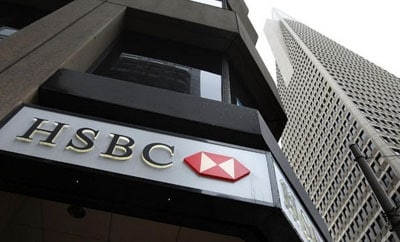British bank HSBC will pay a record $1.9 billion to settle allegations it aided money laundering after reaching an agreement with US authorities, which allows it to escape criminal charges but raises questions over whether banks are “too big to prosecute” for facilitating criminal activity.
The settlement follows July’s US Senate report, which concluded that HSBC’s lax controls enabled Mexican drug cartels to launder billions of dollars by moving money from the bank’s Mexican branches to the US.
According to the Senate report, the bank’s weak enforcement of regulations enabled the movement of money to terrorist organizations and governments on sanctions lists.
The Congressional hearings into the case also exposed the weaknesses of US regulators. In 2010, the Office of the Comptroller of the Currency failed to act after finding that HSBC had not reviewed $60 trillion in transactions and 17,000 accounts flagged as suspicious.
The deal struck by HSBC to end the case includes a deferred prosecution agreement, which will see an independent auditor monitor the bank’s progress over the next five years and leaves open the possibility of prosecution at a later date.
InSight Crime Analysis
Despite the deferred prosecution agreement, there is widespread belief among officials, analysts and in financial markets that this matter is now settled and prosecutions will not follow.
Citing anonymous officials close to the case, the New York Times reports that federal prosecutors spent months debating whether to issue criminal indictments for money laundering. Authorities eventually ruled it out as such charges could ultimately cost HSBC its charter to operate in the US, seriously undermining the country’s fragile economic recovery.
Some prosecutors advocated for a compromise in which the bank would plead guilty to violations of the federal Bank Secrecy Act, but Treasury Department officials and bank regulators cautioned that this could also be detrimental to the economy, according to the Times.
Other investigations and independent research suggest the HSBC case represents just a fraction of the proceeds of organized crime that are laundered through major financial institutions. In not pursuing even the mildest criminal charges against the bank, US authorities are arguably sending banks the comforting message that economic considerations trump legal responsibilities in the fight against organized crime, at least when it comes to “white collar” financial crimes.

